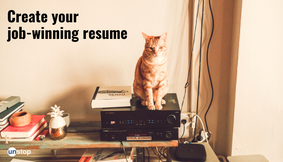Unstop Weekend Internship
A TED Talk by Patty McCord: 8 lessons on building a company people enjoy working for

Having spent 14 long years at Netflix, she has experimented various different ways of making employees work to the best of their potential, empowering and retaining the ones whose performance was deemed excellent. Discussing the need-of-the-hour issues, Patty, in her TED talk, voices her opinion about the novel ways companies must bring into play to build a happy, comfortable workplace.
Lessons to build a company people want to work for
Beginning with how the HR jargon makes her crazy, she emphasized upon the need to run businesses by merely talking to each other like regular human beings. “We might actually get more work done”, says Patty. She had always wanted to step into the shoes of an HR professional and speak the language of the management. Patty’s journey has, however, taught her a vital lesson: None of this matters. Sketching the framework of her thoughts, she says: “There's all kinds of things that we call "best practices" that aren't best practices at all". She quotes how "best practices" usually refer to copying what everybody else does. In a constantly evolving world, Patty highlights a few HR lessons she has learnt over time.
Employees = Adults
Painting the very first lesson into the picture, she says, “Your employees are adults”. Companies create processes and systems and guidelines to keep their employees in place, ending up treating their employees as kids. On the contrary, employers need to accept that fully grown individuals come to work every day. They want to create a difference. “So if we start with the assumption that everybody comes to work to do an amazing job, you'd be surprised what you get”, said Patty. The second lesson, on similar lines, was to bring an important work aspect into the light. “The job of management isn't to control people, it's to build great teams”.
Creating a difference
She then lays stress upon a crucial fact: “People want to do work that means something. After they do it, they should be free to move on”. People shouldn’t be tied to a company like bands. They should be allowed to grow and not be expected to do the same job for 60 years. Also, every person associated with the business has a specific role to play in the company. While somebody may be associated with operations, some other might specifically be assigned for content. But the key lies in the fact that “Everyone in your company should understand the business”. This is Patty’s fourth lesson. Working in collaboration helps businesses achieve amazing things with agility and speed.
The feedback loop
Feedbacks and reviews have a vital role in the development of both, the company as well as the employee. Where annual performance reports don’t really work well with the employees, it is crucial to break their review in a way which not only is understandable but also acceptable. The fifth lesson thus, Patty says, “Let's rethink the word "feedback". Think about it as telling people the truth, the honest truth, about what they're doing right and what they're doing wrong, in the moment when they're doing it.” Employers should make efforts to encourage, motivate people and appreciate them for their work.
Live-out-your-values
The sixth lesson accounted by Patty was for the company to live out its values. To make the work environment efficient, it is important for the employees to see what the company boasts of. Employers need to show them a picture of what’s expected out of them, upholding the company’s values. Having substantial experience with start-ups, Patty brings another facet in the frame: Every start-up idea is daring. Had that not been the case, somebody else would have already been working on it. Stupid, daring ideas are what make start-ups unique, distinct. After all, are your dreams big enough if people don't laugh at it?
Embrace change
Painting one last object into the picture, Patty McCord closes the TED Talk with the mention of a critical aspect: Change. “Every company needs to be excited for change” is her eighth and final lesson. It emphasizes the essence of risks and crucial decisions for the overall growth of the company.
Weaving her thoughts together, she sums up with, “It's a pretty exciting world out there, and it's changing all the time. The more we embrace it and get excited about it, the more fun we're going to have”. To hear Patty McCord voice her views in the TED Talk, click here.
Login to continue reading
And access exclusive content, personalized recommendations, and career-boosting opportunities.
Don't have an account? Sign up














Comments
Add comment